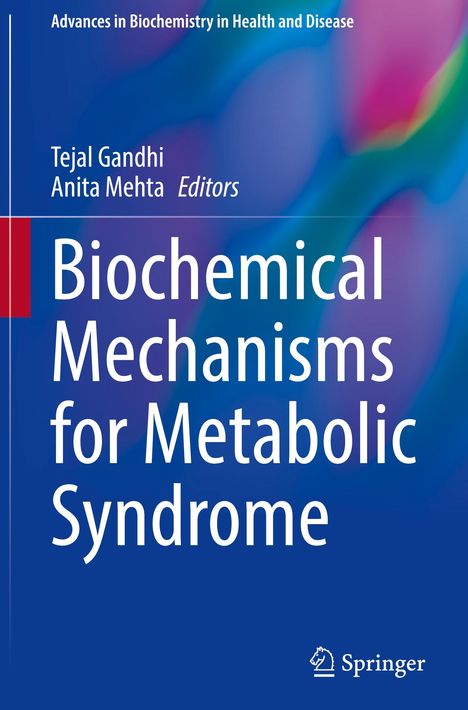Biochemical Mechanisms for Metabolic Syndrome, Gebunden
Biochemical Mechanisms for Metabolic Syndrome
(soweit verfügbar beim Lieferanten)
- Herausgeber:
- Tejal Gandhi, Anita Mehta
- Verlag:
- Springer, 12/2024
- Einband:
- Gebunden
- Sprache:
- Englisch
- ISBN-13:
- 9783031756856
- Artikelnummer:
- 12148313
- Umfang:
- 608 Seiten
- Gewicht:
- 1177 g
- Maße:
- 241 x 160 mm
- Stärke:
- 36 mm
- Erscheinungstermin:
- 25.12.2024
- Hinweis
-
Achtung: Artikel ist nicht in deutscher Sprache!
Klappentext
The book "Biochemical Mechanisms for Metabolic Syndrome" delves into the intricate biochemistry underlying the complex condition known as Metabolic Syndrome. The main focus of the book is to provide a comprehensive overview and in-depth exploration of the various biochemical processes and molecular mechanisms contributing to the development and progression of Metabolic Syndrome. The book is structured into several chapters, each with a specific purpose.
The initial chapters, lay the groundwork by introducing the concept of Metabolic Syndrome, its historical context, prevalence, and the risk factors associated with it. Subsequent chapters tackle various aspects of insulin resistance and its underlying mechanisms, lipid metabolism dysregulation, the impact of obesity, and the complex interplay between Metabolic Syndrome and hypertension. The book then shifts focus to exploring the genetic predisposition to Metabolic Syndrome and delves into recently explored indepth cellular and tissue mechanisms, including the role of gut barrier dysfunction and adipose tissue remodeling. Chapters dedicated to molecular mechanisms and signaling pathways offer a deeper understanding of the inflammatory resolution, and endoplasmic reticulum stress in the context of Metabolic Syndrome. Another significant aspect of the book is the exploration of the Brain-Gut-Adipose Axis and endocrine regulation, looking at the impact of gut microbiota-derived metabolites, gut hormones, and neuronal regulation on Metabolic Syndrome. Additionally, omics technologies are covered extensively, ranging from genomics, transcriptomics, proteomics, and epigenomics, to unravel the molecular complexity of Metabolic Syndrome.
The latter part of the book delves into therapeutic approaches, including lifestyle interventions, pharmacological interventions, and dietary strategies. It also explores the therapeutic potential of brown adipose tissue, and highlights future directions and emerging research in the field of Metabolic Syndrome biochemistry. Overall, the book will provide a valuable resource for researchers, healthcare professionals, and students seeking a comprehensive understanding of the biochemical intricacies of Metabolic Syndrome and potential avenues for therapeutic interventions.


